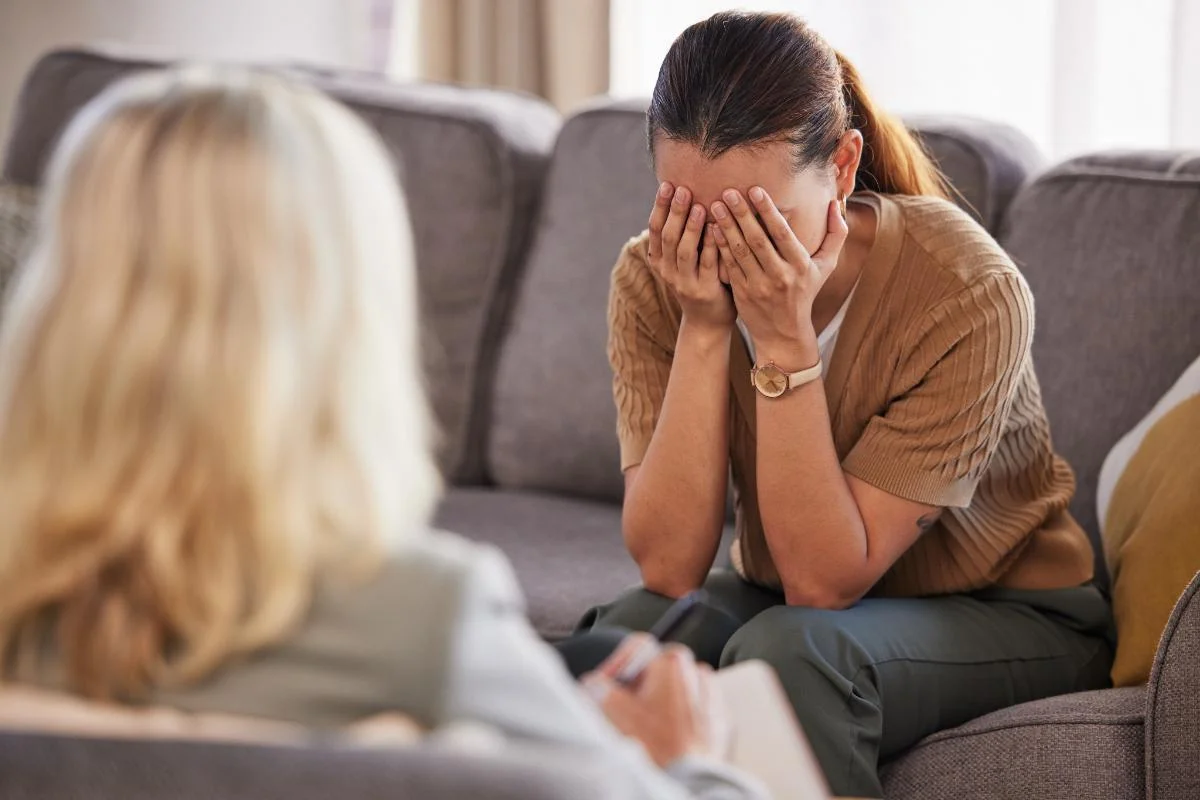At Crestview Recovery in Oregon, we offer dual diagnosis treatment and a gender-specific women's rehab center so that women can address co-occurring issues in a safe space. We offer a women-only program because many women feel safer in groups of other women. Contact Crestview Recovery in Portland to learn more about drug addiction treatment for women as well as dual diagnosis treatment by calling 866.262.0531.
Women's Co-Occurring Issues
Mental health disorders and substance use develop simultaneously for numerous reasons. When addiction and mental health issues conditions occur together, they are known as co-occurring issues. During dual diagnosis treatment, women receive therapy for both substance use and mental health disorders. Common mental health concerns in women include:
- Depression
- Post-traumatic stress
- Anxiety
- Addiction
Women with co-occurring issues that include depression and substance use disorders often experience an overwhelming sense of hopelessness. This can result in the following emotions:
- Extreme sadness
- Feelings of worthlessness
- Low energy
- Trouble concentrating
In depression treatment, you participate in therapy sessions that address your depression as well as substance use disorders. As with co-occurring issues among women, depression and substance use are intricately linked. Women often turn to alcohol or drugs to numb the pain and discomfort of mental health disorders. In turn, abusing drugs and alcohol can lead to mental health disorders.
Post-Traumatic Stress Disorder
Post-traumatic stress disorder (PTSD) among women may follow the witnessing or experiencing traumatic events that could include the following:
- Rape
- War
- Abuse
- Violent crime
Women exposed to traumatic events often have deep emotional responses. However, they repress these feelings, making it difficult to pinpoint the people or events causing the disorder. The emotions evoked by the traumatic event can come back in dreams and memories, causing new pain and trauma as women relive horrific experiences. Post-traumatic stress disorder can lead to drug and alcohol abuse when women attempt to self-medicate instead of addressing their trauma.
Trauma-Informed Therapy
Trauma therapy and substance use treatment can help women recover from traumatic events without resorting to self-destruction behaviors that cause damage to brain cells. We put you on a healing path, and you start to recover from dementia. Overcoming addiction can be challenging, but it's not too late to seek treatment.
Trauma-informed therapy is an evidence-based approach that helps you work through the unique issues associated with trauma. We combine individual, group and family therapies to empower women with skills to effectively cope with their circumstances. Through this therapy, women recognize emotions, increase self-awareness, build trust and effective relationships, learn communication skills and understand their own trauma and healing process.
Anxiety Disorders
Anxiety disorders come in numerous forms, from phobias to generalized anxiety disorder. Many eating disorders such as bulimia, binge eating, and anorexia also fall under this category. Women are more prone than men to anxiety disorders. As with depression, women often turn to drugs and alcohol to numb the symptoms of anxiety. Sources of anxiety disorders can be attributed to numerous factors, including the following:
- Brain chemistry
- Family history
- Life events
- Environmental factors
Having a dual diagnosis can complicate treatment and requires therapists who specialize in co-occurring issues. Drug and alcohol addictions in women often accompany mental health disorders. Among U.S. women with mental health disorders, two out of five struggled with drug abuse, and 75% struggled with alcohol use disorder, according to the 2019 National Survey on Drug Use and Health.
Crestview's drug treatment programs include a 12-step recovery approach to substance use that also helps women develop coping skills for social situations and events that trigger anxiety. By facing your emotions and allowing yourself to work through them, you can gradually learn to cope with the intense feeling—without resorting to substance use.
How to Work With an Intervention Specialist
Trying to intervene on your own can just make matters worse. The person struggling can resent you getting involved. They may get angry or aggressive, and even put you in a situation where they feel threatened, and you feel unsafe. Interventions are more likely to be successful when people stick to the following guidelines:
- The number-one goal is to get the person into treatment
- Explain that the person's life has gotten out of control
- Acknowledge trauma, but don't approach the person with pity
- Expect arguments from the person that don't make a lot of sense
- Don't accept promises to cut back or quit
The first step is to contact an intervention specialist or an addiction treatment center that offers intervention services. The interventionist will start the conversation and keep the communication going between everyone involved. An intervention specialist will make for a successful intervention where the affected individual can finally admit they are in denial and get the treatment they need.
Women's Treatment Program in Oregon

At Crestview Recovery in Oregon, we tailor recovery programs for each client. We have gender-specific programs that allow you to explore holistic and evidence-based therapy to find the techniques that help you the most. Our highly qualified staff includes medical professionals and licensed therapists who specialize in drug and alcohol use disorders and co-occurring issues. Our residential treatment program reinforces recovery core values at every group and individual session. In our recovery and aftercare programs, you receive rehab tips to help you stay focused on your journey of self-discovery.
Now is the time to seek treatment. Contact us at 866.262.0531 to find out more about our addiction treatment and mental health programs for women.
































